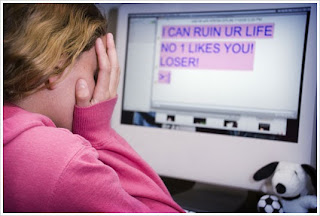 |
| Source |
Public Sphere
I am currently in a political communications class where we are reading Jurgen Habermas's book, The Structural Transformation of the Public Sphere. I thought it was quite interesting how Rettburg presented the idea of the public sphere here. He focused on the influence that the transition to silent reading has had on the public sphere. This shift led to a relationship solely between the text and the reader. This places more emphasis on the growing division between the private and the public because now even literature doesn't have to be a public event or read aloud. In class, we have been discussing the influence of capitalism and how this is driving the private realm to grow, but we haven't talked about how we read as influence on this as well. I do think that what an individual reads privately can easily be brought into rational debate within the public sphere, thus still allowing the private and public strata to interact.
Connectedness
In Chapter Three, "Blogs, Communities, and Networks," Rettburg focuses on how blogs and social media allow for people to be connected across the Internet. I have personal experience with this because Facebook has allowed me to still be connected with people from middle school or younger that I otherwise wouldn't have thought of in years. This is the audience that I'm used to tailoring my social media to. Blogs, on the other hand, allow for a different type of audience, one that the author likely doesn't know personally but is interested in the topic of discussion. This has caused my to change my personal writing style to tailor to people not knowing me or having the same background knowledge that I do. Others, like you who are currently reading this, may have a deeper understanding of this topic or may not have any exposure (though you found this blog, so congrats for that accomplishment!). Therefore, I try to be as clear with my wording and my explanations as I can.
 |
| Source |
Internet Permanence
Rettburg says that internet postings are "persistent" because they continue to be around despite being deleted or hidden. I tend to think that postings are more than persistent but rather are permanent. Anyone could screen shot something or copy it without your knowledge, so although it may be completely eliminated from the World Wide Web, an unknown person may have access to this still. I cannot count the times that I was told, "If you don't want it across the front page of the newspaper, don't post it." I try to take this seriously because bosses and family and countless others could make that happen. The idea of this permanence makes me nervous, however, because it lends itself to cyberbullying.
 |
| Source |
Life Postings
The final topic Rhettburg discusses is the idea that anything we do digitally can be monitored and publicly shared if desired. This includes where we are, what we search and read, when we get emails, what events our calendars have on them, text messages sent, etc. I shudder to think about this, not because I have something to hide, but simply because privacy is a luxury that is quickly slipping away. Needless to say, the world does not need to know everything about me, nor do I care to know where others are at all times or what they are doing. A public image is important to have, but a private understanding of yourself and time to be truly alone is also healthy.
Discussion Questions
How do we feel about private life being so publicized, and permanently, through digital media? How can bloggers most effectively take advantage of the weak ties that they have established on their blogs?
No comments:
Post a Comment